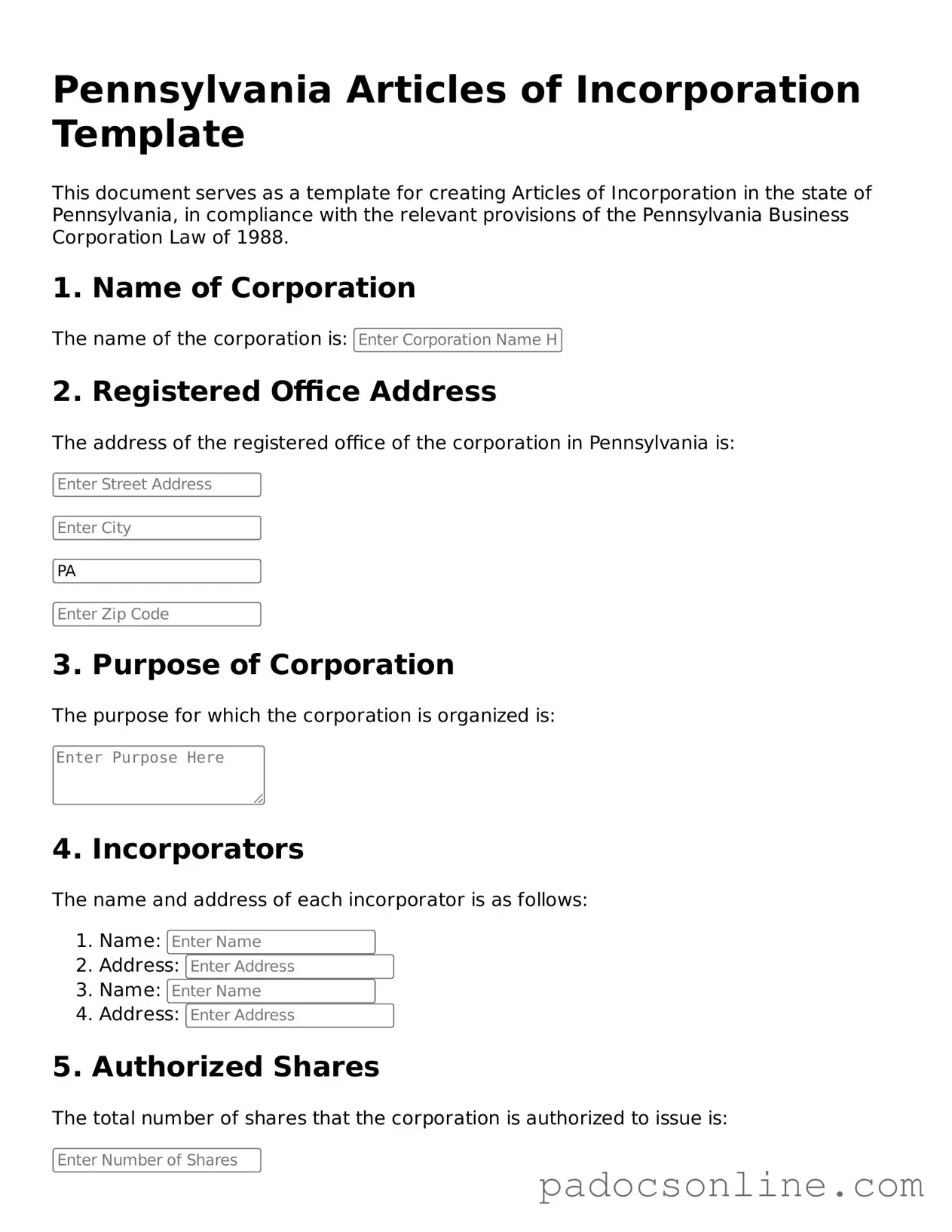Legal Articles of Incorporation Document for the State of Pennsylvania
The Pennsylvania Articles of Incorporation form is a legal document that establishes a corporation in the state of Pennsylvania. This form outlines essential details about the corporation, including its name, purpose, and registered office address. Completing this form is a crucial step for anyone looking to start a corporation in Pennsylvania.
Ready to take the next step in forming your corporation? Fill out the Articles of Incorporation form by clicking the button below.
Fill Out My Form Now
